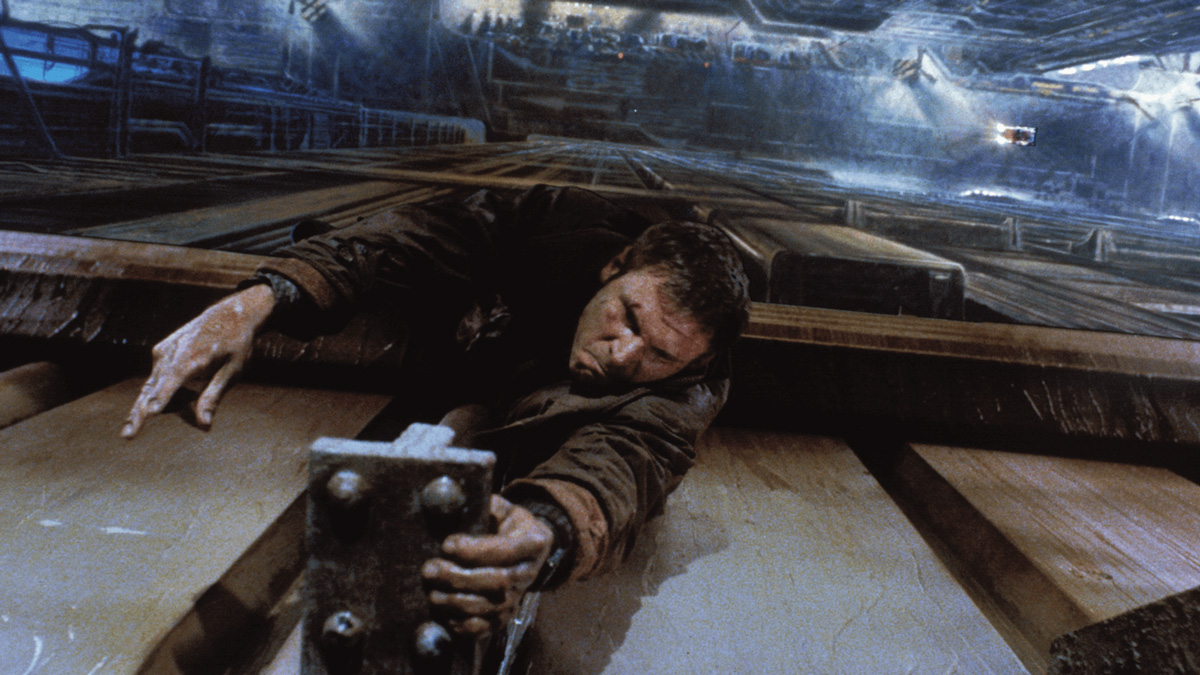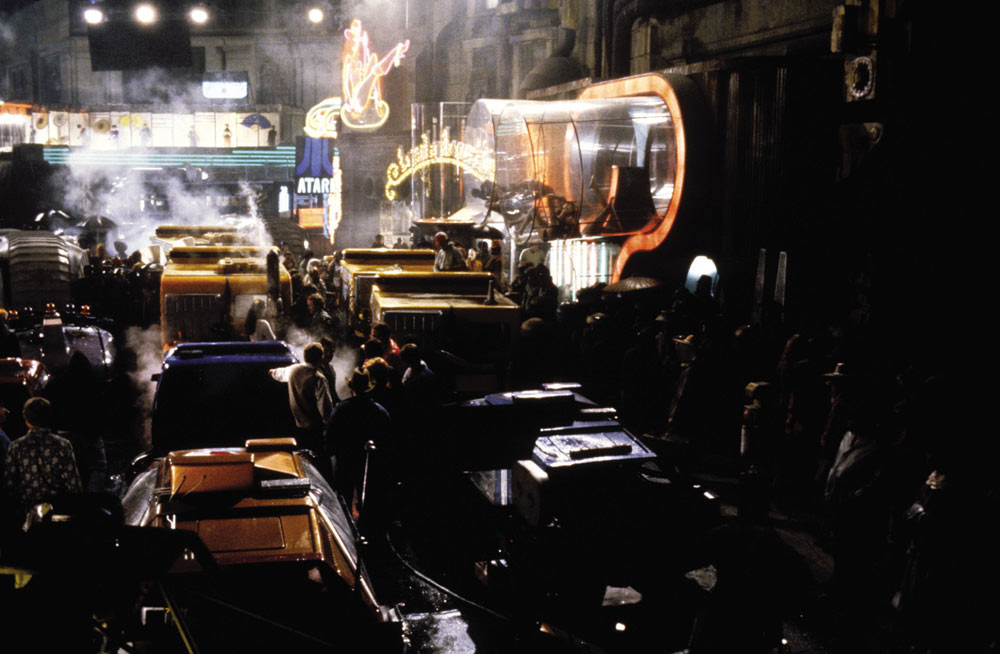
TM & (c)2017 The Blade Runner Partnership. All Rights Reserved.
``Blade Runner'' Ridley Scott, a man from England, fights alone
2017.11.06
What awaited Ridley Scott when he arrived from England.
``Dangerous Days'' has begun production. At the time, there was an unprecedented science fiction boom with blockbuster hits such as `` Star Wars ,'' ``Close Encounters of the Close Encounters of the Third Kind ,'' and ` `Alien .'' Movie companies were enthusiastic about the script for ``Dangerous Days,'' which was based on a science fiction novel, and the number of investors gradually increased. Now, there's the director. The production team had high hopes for Ridley's ability to create the worldview of ``Alien'' and asked him to direct, but Ridley turned him down as he was preparing to make ``DUNE.'' However, Ridley himself was interested in the script for ``Dangerous Days,'' and after leaving ``DUNE,'' he decided to take on the role of director, as if trying to recover from the shock of his brother's sudden death.
When Ridley arrived in Hollywood from his home country of England, what awaited him was a struggle against the Hollywood film production system. . (Although ``Alien'' is a Hollywood movie produced by 20th Century Fox, it was filmed at a British studio.)
Ridley Scott's breakthrough work that shocked the world!
In the pre-production stage, he will first have to deal with screenwriter Hampton Fancher. In fact, Fancher's initial draft consisted of a conversational drama in a room, and there was almost no depiction of the famous ruined future of Los Angeles. Ridley didn't like this at first. What he wanted to depict was not the inside of the room, but the outside world. Fancher requested that the characters be removed from the room anyway. However, Ridley never treated Fancher lightly, respected him as a screenwriter, and approached him tenaciously, but the production team (investors) did not take the same stance as Ridley. They requested various elements from Fancher to sell as entertainment. Eventually, without telling Fancher, he hired another screenwriter, David Peoples, to revise the script on his own. The title was also changed to ``Blade Runner,'' and with this revised script, actual production began.

"Blade Runner" TM & (c)2017 The Blade Runner Partnership. All Rights Reserved.
This is nothing but a tragedy for Fancher. The work that I had planned and written the script for was revised without my permission and the film production progressed. This would be an intolerable humiliation. However, this kind of thing is commonplace in the Hollywood film production system. Only the producers (investors) have the right to speak. In most cases, even the final editing rights of a work, the so-called ``final cut,'' are held by the production team (producers) rather than the director. This system will not only stand in the way of Fancher, but also Ridley Scott.
Fancher also participated as a screenwriter for ``Blade Runner 2049,'' and he brilliantly revived a scene that he had even storyboarded for ``Blade Runner'' but was abandoned for the opening scene of ``Blade Runner 2049.'' There is. This is nothing more than an obsession.
Now that the script was decided, Ridley Scott began filming, but it was inevitable that he would spend a huge amount of money and effort to create the world he envisioned. Syd Mead's wonderful near-future world, which was designed based on Ridley's concept, has been created in minute detail. It would take too much money and effort to make all of that happen.
Additionally, many Hollywood staff working with Ridley for the first time were unable to keep up with his aesthetic. For example, the walls of the Tyrell House reflect the sparkle of water (even though there is no water in the room), creating a unique atmosphere, but the staff asked, ``Why does the sparkle of water reflect when there is no water?'' Is there one?'', he said, unable to understand Ridley's particular aesthetic. (By the way, this sparkling water effect is also closely followed in "Blade Runner 2049.")
Denis Villeneuve x Roger Deakins! A sequel with overwhelming quality!
In addition, in order to portray a gloomy, near-future Los Angeles, and to hide the low budget, the filming locations were always set at night, and were covered in rain and smoke. Ridley later recalled, ``My weapons were the night, the rain, and the smoke.'' However, due to this, many of the cast and staff, including lead actor Harrison Ford, were soaked day in and night out, and were exposed to the worst of the scene, where smoke was rampant. The chaotic shooting scene exhausted everyone and pushed them into a corner. . Ridley relentlessly gives instructions in order to stick to his own aesthetic. The number of staff members who could not understand the obsession of this man from England and quit due to conflict gradually increased. But Ridley Scott says: ``My job is to be a director.'' ``As the name suggests, a director's job is to direct.''
On set, Ridley fought to create the overwhelming world of Blade Runner by sticking to his own aesthetic, but filming wasn't the only place he needed to stick to his aesthetic. In order to put a brake on the never-ending shooting and never-ending expenses, the production team summoned Ridley during filming and held frequent meetings. The production team is by no means Ridley Scott's patrons. They are hiring Ridley purely for business purposes. It can be assumed that the pressure on Ridley from the production team was considerable.
But Ridley Scott would not compromise. From his point of view, it may have been a series of compromises, but despite all the friction he fought through and was able to photograph Los Angeles in the near future.

